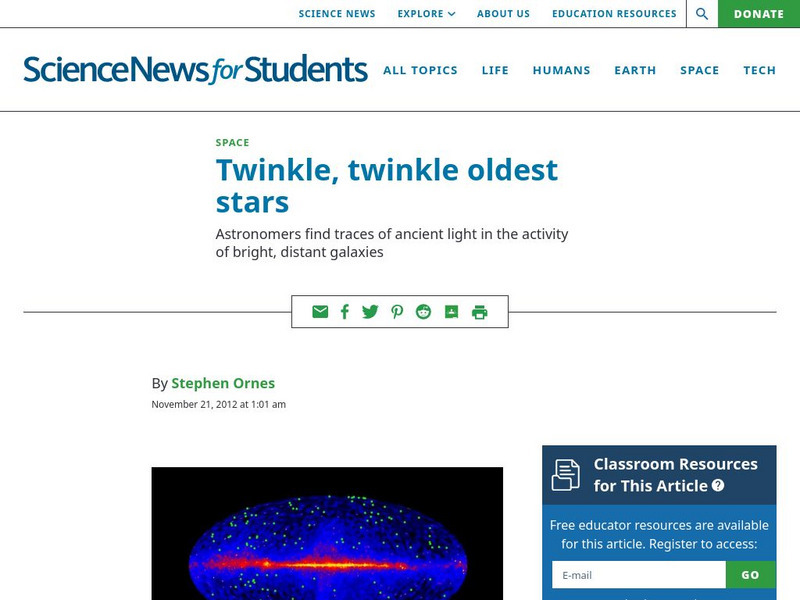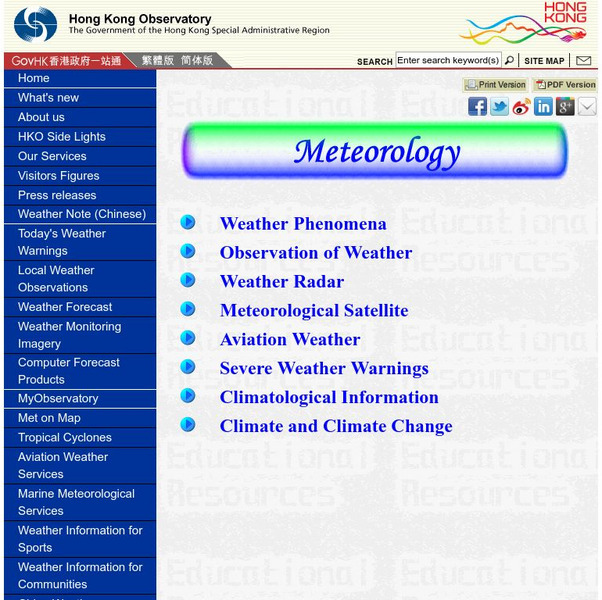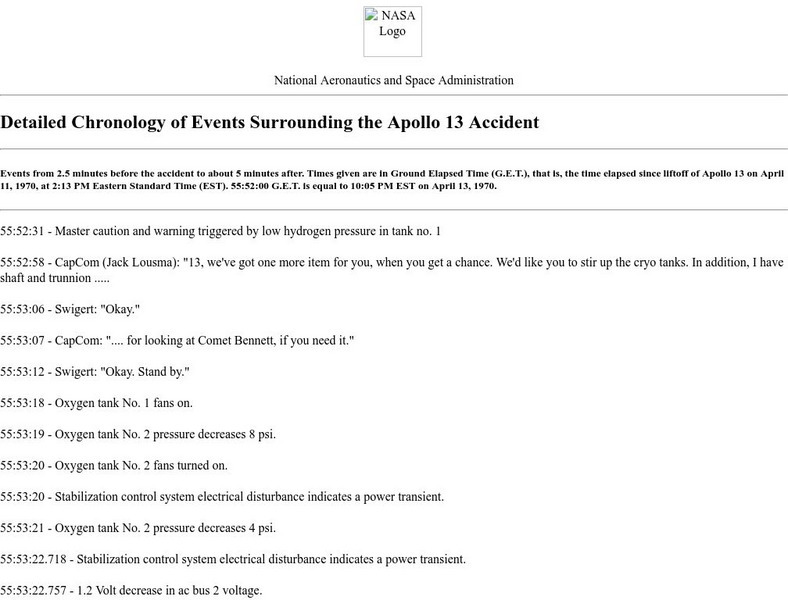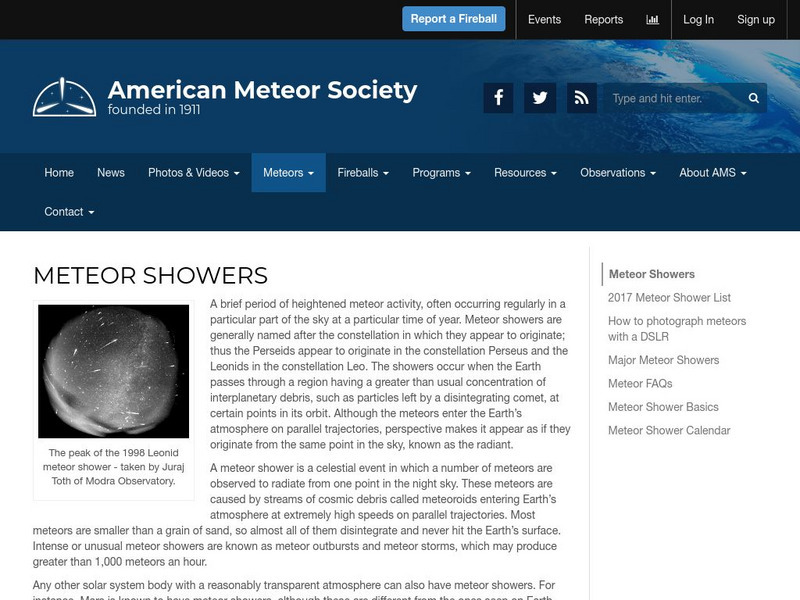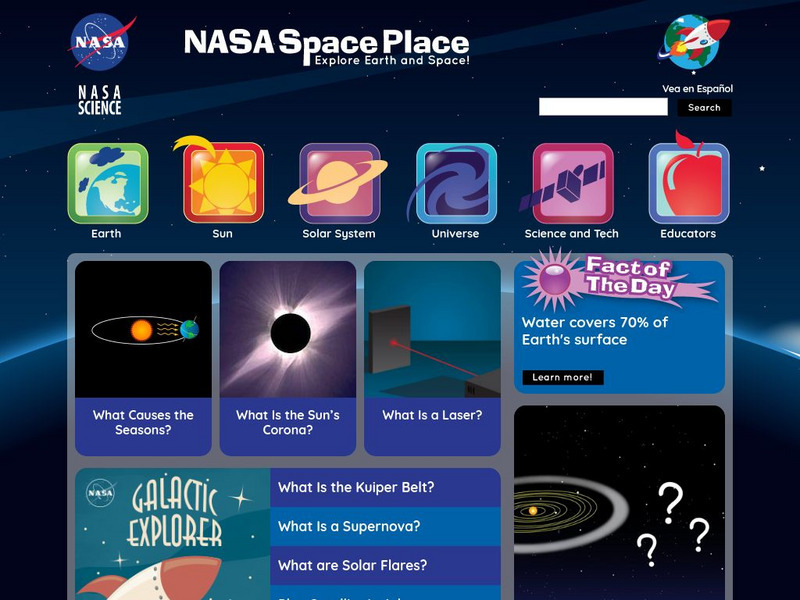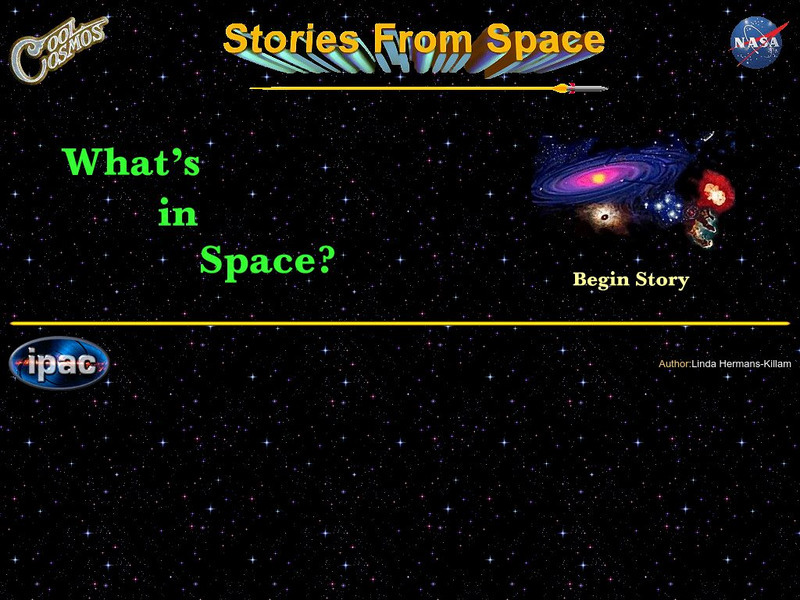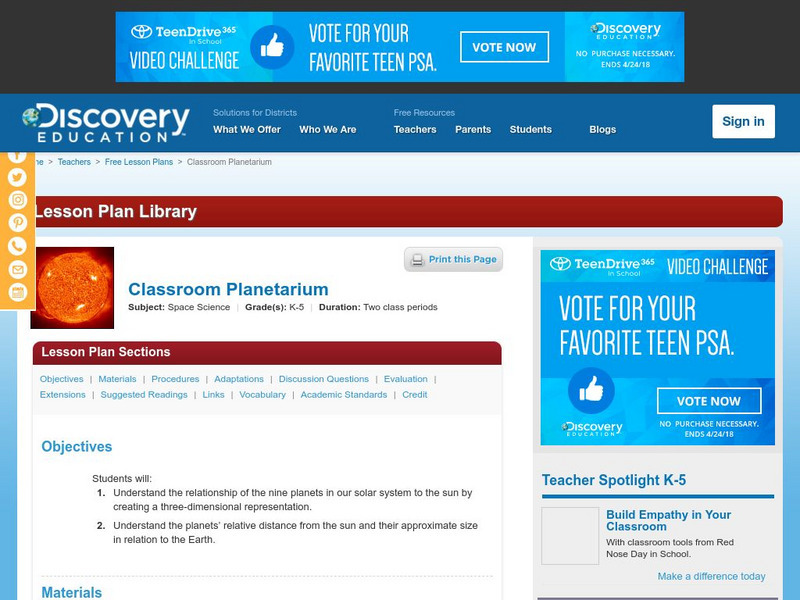NASA
Nasa: Finding the Distances Between Planets
NASA site features a lesson plan that teachers can use to help their students see how far they are from each of the planets.
Chem4kids
Chem4 Kids: Chemistry in Space
Anywhere there is matter there is chemistry, therefore chemistry is found all over the universe, not only here on Earth. In fact, scientists have even discovered organic chemistry in other galaxies.
Society for Science and the Public
Science News for Students: Twinkle, Twinkle Oldest Stars
Astronomers have determined how super-bright galaxies can be used to detect the faint glow of "cosmic fog." Cosmic light is light that has left every star and now lingers in the universe, including light from stars that have burned out.
PBS
Pbs Kids: Dragonfly Tv: How Can You Sail in Outer Space?
Sailing is easy, if you have water. But can you use a sail where there isn't any water? PBS site invites you to come along with Sarina and Mia to explore if it is possible to use a sail in outer space.
California Institute of Technology
Cal Tech: Two Micron All Sky Survey
Learn about the Two Micron All Sky Survey project, in which telescopes and observatories scan the sky for infrared radiation in order to learn more about the Milky Way galaxy. The infrared spectrum is described and its importance to...
Other
Sky Server: Scavenger Hunt
In this site, from the SkyServer of the Sloan Digital Sky Survey users hunt for stars, galaxies, quasars, asteroids and meteors. Learn what they look like and how to find them.
Other
Hong Kong Observatory: Meteorology
A useful page from the Hong Kong Observatory offering introduction to weather and weather phenomenon. Learn about thunderstorms, tides, monsoon season, weather radar, and weather in space. Not a slick site but informative. Most...
Other
Kid Power: Astronomy for Kids
Young children can find facts about the Solar System, the Sun, meteorites, stars, galaxies, planets, our moon, comets, asteroids, and space exploration. Pages offer clear photos and bullet-point information, which is easy to read and...
NASA
Nasa: Detailed Chronology of Events Surrounding the Apollo
How would you like to experience what was actually said during the Apollo 13 accident? At this site read recorded NASA information from 2.5 minutes before the accident to about 5 minutes after.
Museum of Science
Welcome to the Universe at the Museum of Science
The Boston Museum of Science offers an extensive selection of movies about space in the Charles Hayden Planetarium. If you live near the facility, find out the shows appearing and grade levels they are intended for to schedule a field...
Enchanted Learning
Enchanted Learning: Zoom Astronomy
Where is our Solar System? How far away is the sun? What makes up the sun? Find out all you want to know about our solar system. This is a comprehensive on-line site about space and astronomy. Check out all of the excitement!
Ducksters
Ducksters: Space Science: Astronomy for Kids
Kids learn about astronomy, the study of outer space including the stars, planets, comets, black holes, and the Solar System. History and astronomers in this astronomy for teachers and kids section.
Other
American Meteor Society: Comets & Meteor Showers
This site from the American Meteor Society contains links to a calendar of meteor shower events and links to information on meteor showers. Also, contains information on comets.
Other
Stellarium: Planetarium
Bring a planetarium to your computer with this free open source software. Download the software to show the sky in 3D with the naked eye.
NASA
Nasa: The Space Place
This site from NASA's Space Place is geared towards early elementary learners. It offers detailed instructions for crafts and activities related to space, games and a teacher resource area. Students can also ask an expert at this site.
California Institute of Technology
Cal Tech: Stories From Space: What's in Space?
Through this story you will be introduced to outer space: stars, the Milky Way, planets, the Solar System, the Sun, clouds of dust and gas, galaxies.
ClassFlow
Class Flow: Space
[Free Registration/Login Required] This flipchart describes what causes the seasons, explains the moon's phases, and introduces what a constellation is. It utilizes the Activotes to help describe the phenomena.
NASA
Nasa: Cassini Huygens Mission
NASA site surveys the satellite Cassini's mission to Saturn as well as the ejection of the Huygens probe.
CK-12 Foundation
Ck 12: Earth Science: Universe Study Guide
[Free Registration/Login may be required to access all resource tools.] This study guide summarizes the key points of the Universe. Includes a few questions to check for understanding.
CK-12 Foundation
Ck 12: Earth Science: Star Constellations Study Guide
[Free Registration/Login may be required to access all resource tools.] This study guide summarizes key points about constellations. Includes a few questions to check for understanding.
CK-12 Foundation
Ck 12: Earth Science: Milky Way Study Guide
[Free Registration/Login may be required to access all resource tools.] This study guide summarizes key points about the Milky Way. Includes a few questions to check for understanding.
Discovery Education
Discovery Education: Classroom Planetarium
Create a classroom model of the solar system while teaching about relative size of all the planets, and each planet's distance from the sun.
Mocomi & Anibrain Digital Technologies
Mocomi: What Is a Constellation?
Constellations are patterns formed by groups of stars. Take a look at some of the familiar constellations.
Curated OER
European Space Agency: Story of the Universe
The story of the universe is told in this engaging site by the European Space Agency. The history of European space science is timelined with dates ranging from 1066 to present day. The birth of galaxies, the big bang, and the beginnings...




